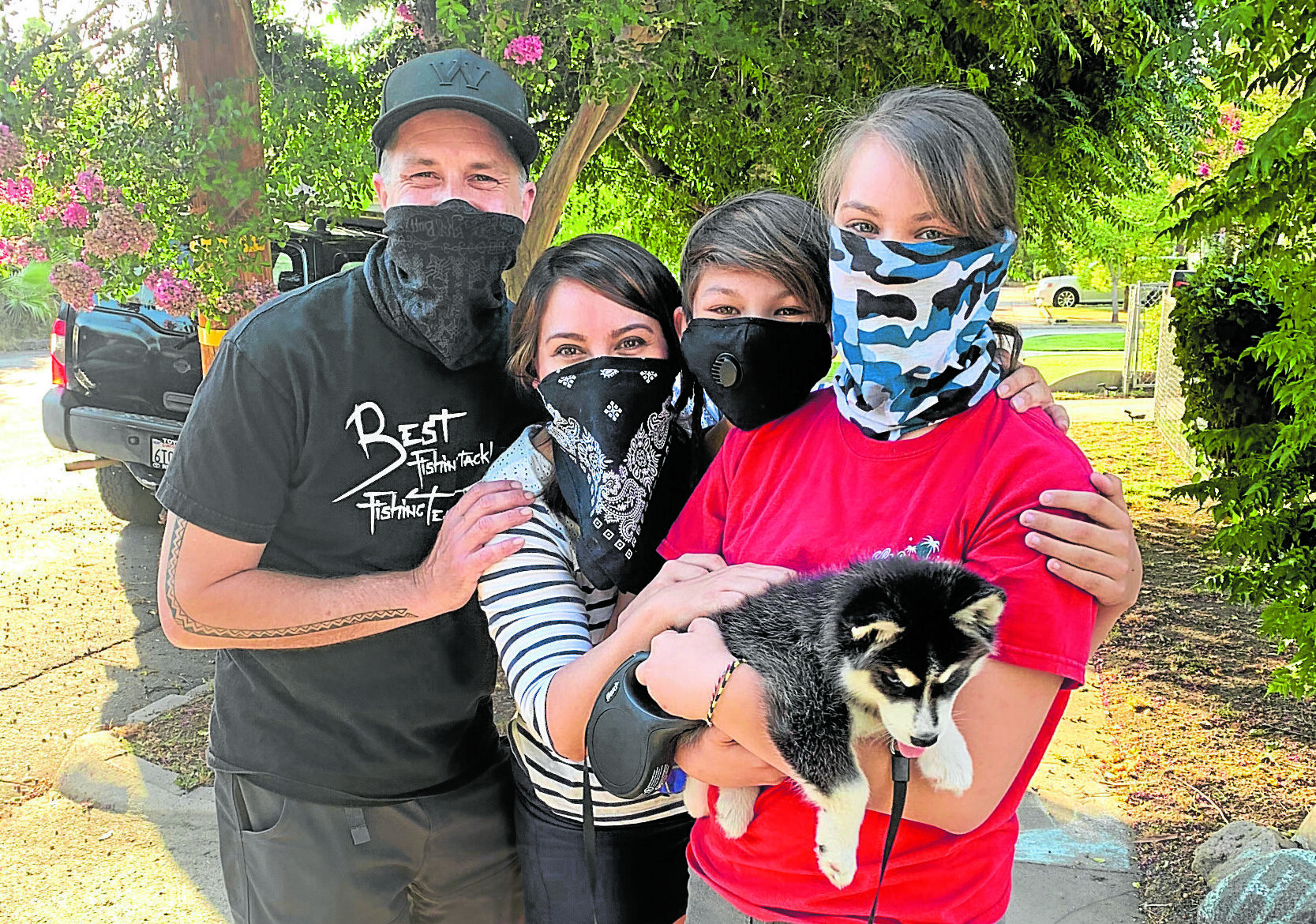When I was pregnant with my first child, I prepared for every imaginable thing, and then some!
I preordered personalized embroidered baby items, decorated the nursery to perfection, and read up as much as I could on giving birth and child care.
It was, therefore, no surprise that while terrified of the idea of childbirth, I was raring to meet my firstborn and could hardly wait for my due date, June 12, Independence Day!
About three days priot, I went for a routine checkup; when my obstetrician said I probably would not give birth for at least another week, I even tried to convince her to induce me.
She shook her head and was about to send me home when, all of a sudden, she caught sight of a cord coiled around my daughter’s neck. She looked at me and announced that I had gotten my wish. I would be delivering my baby within 18 hours—via Caesarian section (CS)!
Now that was something I did not think about. It never crossed my mind that I would not have a normal delivery. Apart from joki ng around with my husband, who used to tease me and say he would request for a “Z” cut like the famous “Z” of Zorro, I never thought about having a Caesarian.
I never thought about postpartum physical care because of the assumption that I would deliver and recover normally. In hindsight I should have dedicated some time to preparing for a CS and, more importantly, a post-CS recovery plan.
No walk in the park
A Caesarian section is a major operation and requires delicate post-operation care. While recovering from a CS was not as bad as I thought it would be, it is no walk in the park either. From tending to your wound to the limited physical activity, recovery is no joke and shouldn’t be pushed aside.
I believe that a mother’s postsurgery health and recovery are just as important as caring for a newborn.
You have to take care of yourself, too, so you can be in shape to take care of your child.
If I were to compare my recovery from my three Caesarians, I can honestly tell you that my third surgery was the best—even if I was six years younger when I had my first child. Unlike my first, I was much better prepared.
I was very impatient when I had my first child and thought I was Superwoman. I didn’t mind going up and down the steep stairs in our old house in the first week. I attempted to do the grocery alone shortly after I came home from the hospital. Fortunately, my mom found out and put a stop to that plan.
Not surprisingly, I paid for those mistakes dearly with a much more difficult and challenging recovery.
Now I wish I had spoken to someone about recovering from a Caesarian before giving birth so I could have covered all bases. If you are giving birth soon for the first time via CS or even normally, try to prepare as much as you can.
Before going to the hospital:
Stock up on groceries for at least two to three weeks, and add allowance for the snacks and meals you will serve friends and family who will come to visit or stay to help out. Most will bring food, but you never know when you will have an extra mouth to feed.
Try to buy a lot of ginger so you can have fresh ginger tea as often as possible. Ginger is known to be quite helpful in healing your delivery.
Pick up maternity pads as well as disposable maternity bed mats to avoid soiling your sheets.
Buy a TV tray with a stand that you can put by your bedside or near you for your meals or whatever things you need to have at arm’s length when you get home.
In the hospital:
Get ready to wake up with a catheter which, as uncomfortable as it may sound, is actually quite a relief when you can hardly get out of bed in the first few hours.
However, don’t get too cozy in bed, as you will be encouraged to take a few steps to the bathroom on your own within 24 hours.
When you do this, don’t make any sudden movements. Learn to lean on your side before getting up, and find a position that will not put any pressure on your abdomen. Move slowly and breathe deeply so you don’t get dizzy or weak.
Don’t attempt to move around more than what your doctor recommends, or you may find yourself feeling worse than when you started.
Monitoring process
While in the hospital, you will receive round-the-clock medication for the pain so you don’t have to worry about feeling anything. But don’t let the lack of pain fool you. You are recovering from a major operation, and the hospital knows this.
Expect to be awakened every three or four hours as nurses take your temperature to check if you have fever, which will indicate an infection setting in.
Don’t be surprised to discover everyone’s sudden interest in whether you’ve passed gas and your bowel movement. It’s all part of their monitoring process on your recovery. This will dictate whether you can already move on from a liquid to a solid diet.
There will be bleeding and contractions, as your uterus shrinks back to its normal size. This is normal, but tell your doctor if you have excessive blood or severe pain.
At home:
Avoid going up and down the stairs. If you live in a two-story home, stay in one area, whether on the ground or the second floor.
If possible, put everything you need in the area where your bedroom is, so you do not have to move around so much.
If this is not feasible and you really must go upstairs to sleep at night, try to have everything you need downstairs already, so you go up and down only once a day.
Cleaning your wound
Aside from the baby’s sleeping and changing area, you will also need a small table or TV tray for your meals. Keep your medicines and medical supplies nearby as you will have to take them every few hours, and clean your wound regularly for about two to three weeks or so until your OB says it’s OK.
Cleaning your wound is a delicate but simple task that you can do yourself, but if you can get someone to help you in the first few days, all the better. You don’t need to get a medically trained nurse; your husband or almost anyone you trust can do it.
Stay near a couch so you can snooze when the baby naps, and have a TV or your computer nearby in case you feel the need to get connected to the outside world.
Ideally, do not carry anything (or anyone) heavier than your newborn. Carrying heavy loads can harm you. Limit your physical activity and movement, especially during the first two to three weeks.
If you run out of food or supplies, leave it to your husband, mother or a close friend to pick up the necessary items.
Stay hydrated and well-fed so you have enough energy to recover and take care of your baby.
I have some Chinese friends who also advised me to refrain from taking a full bath for a month. I seriously thought about this because, when I had my firstborn, I took a full bath while still in the hospital and, that night, woke up with chills.
When I had my second and third children, I delayed the full bath and stuck it out with sponge baths for a little longer, and I feel like it helped. I could not do a month, but even just a week or two may help, as you can’t wet your wound anyway; so it’s best to refrain from showers for a while.
Watch for signs that your wounds are infected or that something is wrong with your recovery, such as fever, severe headaches, sudden sharp shooting pain in your abdominal or incision area (look out for pus as well), foul odors and discharge.
Call your doctor if you see blood in your urine or experience extremely heavy bleeding.
Honestly, while having your newborn is heaven, there are also times when staying home with limited activities for the first two to three weeks can test the limits of your sanity, especially when you are coping with the baby blues or a little postpartum depression.
Not being able to participate in the activities of the rest of your family or interact with people can make a new mom feel a little lonely, so don’t be shy! Reach out, and ask close friends to visit when you are up for visitors already. Call friends to catch up, and share what you are going through and feeling.
Also, remember to be very patient with your body and recovery. Soon enough, you will find yourself fully recovered, with the days nothing more than a memory.
But by then, nothing will ever be completely normal again, now that you have your special bundle of joy to make your life better than you ever imagined.












































